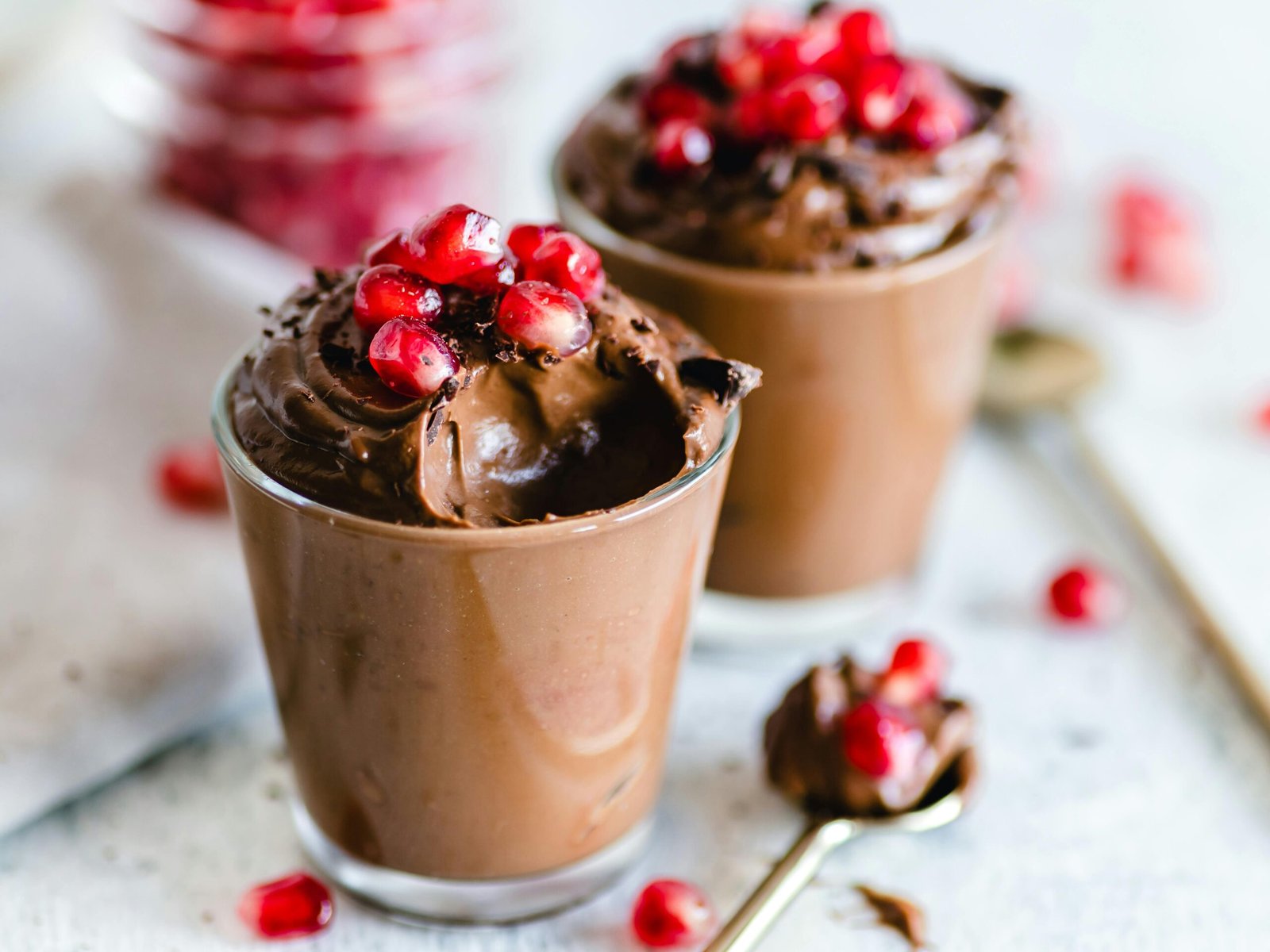How to Reduce Intake of Sugar: Simple Tips and Tricks (2024)

Introduction
“Discover simple tips and tricks to reduce your intake of sugar in 2024. Learn how to identify hidden sugars, choose healthier alternatives, and make smarter dietary choices. Improve your health with practical strategies to cut down on sugar consumption.”Sugar, while delicious, can have numerous adverse effects on your health if consumed in excess. This article will guide you through practical and effective ways to cut down on sugar, helping you lead a healthier, more energetic life.
Understanding Sugar
Types of Sugar: Natural vs. Added
Understanding the difference between natural and added sugars is crucial for making healthier dietary choices.
Natural Sugars:
They are found in:
- Fruits: Fructose is the type of natural sugar found in fruits. Along with the natural sugar, fruits provide essential vitamins, minerals, and fiber, making them a healthy choice.
- Vegetables: Some vegetables, like sweet potatoes, carrots, and beets, contain natural sugars. Like fruits, they also offer a wealth of nutrients and fiber.
- Dairy Products: Dairy also provides protein, calcium, and other important nutrients.
Natural sugars are typically accompanied by beneficial nutrients and fiber, which help slow down the absorption of sugar into the bloodstream, providing a more stable source of energy.
Added Sugars:
These sugars are found in:
- Processed Foods: Many processed foods, such as cookies, cakes, and candies, contain added sugars to enhance flavor.
- Condiments and Sauces: Ketchup, salad dressings, and barbecue sauces often have added sugars to improve taste.
- Packaged Snacks: Granola bars, flavored yogurts, and breakfast cereals frequently contain added sugars.
Consuming too much-added sugar can lead to various health problems, including weight gain, diabetes, and heart disease.
In summary, natural sugars are part of whole foods and come with essential nutrients and fiber, whereas added sugars are incorporated into foods and drinks during production and offer no nutritional value beyond their caloric content. Reducing added sugar intake and focusing on foods with natural sugars is a key step toward a healthier diet.
Health Risks of Excessive Sugar Consumption
Obesity
Consuming too much sugar can have serious consequences for your health. Here are some of the major risks associated with excessive sugar intake:
Obesity
One of the most well-known risks of consuming too much sugar is obesity. Sugar provides empty calories, which means it adds calories without any nutritional benefits. When you consume more calories than your body needs, those extra calories are stored as fat. High sugar intake can lead to weight gain, which increases the risk of obesity and related health problems.
Diabetes
High sugar intake causes frequent spikes in blood glucose levels, putting stress on the pancreas to produce more insulin.
Heart Disease
Elevated triglycerides can contribute to hardening of the arteries and an increased risk of heart attacks and strokes. Additionally, sugar consumption can raise blood pressure and promote inflammation, both of which are risk factors for heart disease.
Tooth Decay
Sugar is a major cause of tooth decay. When you consume sugary foods and drinks, the sugar interacts with bacteria in your mouth to form acid.
Liver Disease
Excessive consumption of fructose, a type of sugar found in many sweetened beverages and processed foods, can lead to non-alcoholic fatty liver disease (NAFLD). Fructose is metabolized in the liver, and high intake can cause fat to accumulate in liver cells.
Increased Risk of Cancer
Excess sugar consumption can lead to obesity, which is a known risk factor for several cancers, including breast, colon, and pancreatic cancer. Additionally, insulin resistance and elevated blood glucose levels, which can result from excessive sugar intake, have been linked to an increased risk of cancer.
Mental Health Issues
There is growing evidence that high sugar consumption can negatively impact mental health. Diets high in sugar have been linked to an increased risk of depression and anxiety. Sugar can cause rapid spikes and crashes in blood sugar levels, which can affect mood and energy levels. Additionally, the inflammatory effects of sugar on the body may also play a role in mental health disorders.
Aging Skin
Excessive sugar intake can accelerate the aging process of your skin. High sugar levels in the blood can lead to the formation of advanced glycation end products (AGEs), which damage collagen and elastin, the proteins that keep skin firm and elastic. This can result in wrinkles, sagging skin, and a loss of skin elasticity.
In summary, consuming too much sugar can have a wide range of negative effects on your health, from weight gain and diabetes to heart disease and mental health issues. By reducing your sugar intake, you can significantly lower your risk of these health problems and improve your overall well-being.
Identifying Hidden Sugars in Your Diet
Reading Nutrition Labels
Reducing your sugar intake is easier said than done, especially when many foods contain hidden sugars.
Reading Nutrition Labels
One of the best ways to identify hidden sugars is by carefully reading nutrition labels.
- Check the Ingredients List:If sugar or any of its aliases is one of the first few ingredients, the product likely contains a high amount of sugar.
- Recognize Sugar’s Many Names: Sugar goes by many names, including high fructose corn syrup, cane sugar, corn syrup, dextrose, fructose, glucose, maltose, sucrose, and honey. Watch out for any ingredients ending in “-ose.”
- Look at the Nutritional Information: The “Sugars” section under carbohydrates on the nutrition facts label will tell you how many grams of sugar are in a serving. Keep in mind that this number includes both natural and added sugars.
Common Foods with Hidden Sugars
Many foods that don’t taste sweet still contain significant amounts of added sugar. Here are some common culprits:
- Condiments and Sauces: Ketchup, barbecue sauce, salad dressings, and pasta sauces often contain added sugars to enhance flavor. Look for sugar-free or low-sugar versions, or make your own at home.
- Bread and Baked Goods: Many types of bread, bagels, and other baked goods contain added sugars. Opt for whole grain options and check the labels to find ones with lower sugar content.
- Cereals and Granola Bars: Breakfast cereals and granola bars can be loaded with sugar. Choose whole grain cereals with minimal added sugar and make homemade granola bars to control the ingredients.
- Flavored Yogurt: Opt for plain yogurt and add fresh fruit or a small amount of honey for sweetness.
- Canned Foods: Canned fruits, vegetables, and soups can contain added sugars. Choose products labeled “no added sugar” or “unsweetened” and check the ingredients list.
- Snack Foods: Chips, crackers, and pretzels can have hidden sugars. Look for whole-grain options with no added sugar.
Beverages
Be mindful of the following:
- Soda and Energy Drinks: These are obvious sources of added sugar. Avoid them or choose diet versions sparingly.
- Fruit Juices: Even 100% fruit juice contains a lot of natural sugar, and many juices have added sugars. Limit your intake and opt for whole fruits instead.
- Sports Drinks: Unless you’re engaging in prolonged intense exercise, you don’t need the extra sugar and calories from sports drinks. Water is usually sufficient for hydration.
- Coffee and Tea: Specialty coffees and teas can contain large amounts of added sugar.
Healthy Swaps
To reduce hidden sugars in your diet, try these healthy swaps:
- Homemade Sauces and Dressings: Make your own salad dressings, pasta sauces, and marinades using fresh ingredients and natural sweeteners like balsamic vinegar or citrus juice.
- Whole Fruits and Vegetables: Use whole fruits and vegetables to add natural sweetness and flavor to your meals.
- Plain Dairy: Choose plain yogurt and milk, and sweeten them naturally with fresh fruit, a drizzle of honey, or a sprinkle of cinnamon.
- Infused Water: Instead of sugary drinks, infuse water with slices of lemon, cucumber, or berries for a refreshing and naturally sweet flavor.
- Healthy Snacks: Opt for nuts, seeds, fresh fruits, and vegetables instead of processed snack foods.
Identifying hidden sugars is a crucial step in reducing your overall sugar intake. By reading labels carefully, choosing whole foods, and making simple swaps, you can significantly cut down on hidden sugars and improve your health.
Benefits of Reducing Sugar Intake
Improved Energy Levels
Cutting down on sugar can lead to numerous health benefits, ranging from improved physical health to better mental well-being. Here are some key advantages of reducing your sugar intake:
Improved Energy Levels
High sugar intake can cause spikes and crashes in your blood sugar levels, leading to periods of high energy followed by fatigue. By reducing sugar, you can maintain more stable blood glucose levels, resulting in steady and sustained energy throughout the day. This can help you feel more alert and productive.
Better Weight Management
Excessive sugar consumption contributes to weight gain because it adds empty calories without providing essential nutrients. By cutting back on sugar, you can reduce your overall calorie intake, making it easier to maintain a healthy weight. This can help prevent obesity and related health issues, such as type 2 diabetes and heart disease.
Enhanced Mood and Mental Clarity
High sugar consumption can negatively affect your mood and cognitive function. Sugar crashes can lead to feelings of irritability, anxiety, and difficulty concentrating. Reducing sugar intake can help stabilize your mood and improve mental clarity, leading to better emotional well-being and cognitive performance.
Reduced Risk of Chronic Diseases
Lowering your sugar intake can significantly decrease your risk of developing chronic diseases. Here are some specific benefits:
- Diabetes Prevention: Reducing sugar can help prevent insulin resistance, a key factor in the development of type 2 diabetes.
- Heart Health: Lower sugar consumption can reduce your risk of heart disease by lowering blood pressure, decreasing inflammation, and reducing levels of harmful cholesterol and triglycerides.
- Cancer Risk Reduction: By managing your weight and reducing insulin resistance, you can lower your risk of certain cancers, such as breast and colorectal cancer.
Better Oral Health
Excess sugar intake is a major cause of tooth decay and cavities. By cutting back on sugar, you can improve your oral health and reduce the risk of dental problems, resulting in healthier teeth and gums.
Improved Skin Health
Sugar can cause the formation of advanced glycation end products (AGEs), which damage collagen and elastin, the proteins that keep your skin firm and elastic. By reducing sugar, you can improve your skin’s appearance, making it look healthier and more youthful.
Better Digestive Health
Consuming too much sugar can disrupt the balance of bacteria in your gut, leading to digestive issues like bloating, gas, and constipation. Reducing sugar intake can promote a healthier gut microbiome, improving your overall digestive health and comfort.
Enhanced Immune Function
High sugar consumption can weaken your immune system, making you more susceptible to infections. Cutting back on sugar can strengthen your immune response, helping you fight off illnesses more effectively.
Sustained Satiety and Reduced Cravings
Foods high in sugar can cause rapid spikes in blood sugar followed by crashes, leading to increased hunger and cravings. By eating less sugar and opting for more balanced, nutrient-dense foods, you can feel fuller for longer and reduce unhealthy cravings, making it easier to stick to a healthy diet.
In conclusion, reducing your sugar intake offers a wide range of health benefits, from improved energy levels and weight management to better skin and a reduced risk of chronic diseases. By making conscious choices to limit added sugars in your diet, you can significantly enhance your overall health and well-being.
Setting Realistic Goals
Assessing Your Current Sugar Intake
Begin by assessing how much sugar you currently consume. Track your meals and snacks for a week to get a clear picture.
Setting Achievable Targets
Set small, achievable goals. For example, aim to reduce sugary drinks first, then move on to other high-sugar foods.
Tracking Your Progress
Use a journal or an app to track your progress. Celebrate small victories to stay motivated.
Healthy Alternatives to Sugar
Natural Sweeteners
Here are some great options:
Natural Sweeteners
Natural sweeteners can provide a sweet taste with added nutritional benefits:
- Honey: Honey is a natural sweetener that contains antioxidants, vitamins, and minerals. Use it sparingly to sweeten tea, yogurt, or oatmeal.
- Maple Syrup: Pure maple syrup is rich in antioxidants and minerals like zinc and manganese. It’s a great alternative for pancakes, waffles, and baking.
- Molasses: Use it in baking or to sweeten sauces.
- Coconut Sugar: Made from the sap of coconut palm, this sugar has a lower glycemic index than regular sugar and retains some nutrients found in the coconut palm.
- Stevia: Derived from the leaves of the stevia plant, this natural sweetener is calorie-free and much sweeter than sugar. It’s great for sweetening beverages and can be used in cooking and baking.
Fruits and Vegetables
Using fruits and vegetables to sweeten your foods can add natural sweetness along with vitamins, minerals, and fiber:
- Bananas: Mashed bananas can be used to sweeten baked goods, smoothies, and oatmeal.
- Applesauce: Unsweetened applesauce is a great substitute for sugar in baking and can also be used in sauces and dressings.
- Dates: Blended dates can be used in smoothies, energy bars, and baking recipes as a natural sweetener.
- Sweet Potatoes and Carrots: These vegetables can be used to add natural sweetness to soups, stews, and baked goods.
Whole Grains and Fiber-Rich Foods
Incorporating whole grains and fiber-rich foods into your diet can help stabilize blood sugar levels and reduce cravings for sweets:
- Oats: Whole oats can be used to make oatmeal, granola, and baked goods, providing a naturally sweet flavor and fiber.
- Quinoa: This grain can be used in breakfast bowls and baked goods for a slightly sweet, nutty flavor.
- Brown Rice: Use brown rice in meals to add a subtle sweetness and fiber.
Spices and Flavorings
Adding spices and other flavorings can enhance the natural sweetness of foods without adding sugar:
- Vanilla Extract: A small amount of vanilla extract can enhance the sweetness of smoothies, yogurt, and desserts.
- Nutmeg and Allspice: These spices can add depth and sweetness to various dishes and baked goods.
- Citrus Zest: Lemon or orange zest can add a bright, sweet flavor to desserts, salads, and beverages.
Making Healthier Choices
Here are some tips for incorporating these alternatives into your diet:
- Homemade Dressings and Sauces: Make your salad dressings, marinades, and sauces using natural sweeteners and spices.
- Balanced Snacks: Choose snacks that combine natural sweetness with protein and healthy fats, such as apple slices with almond butter or Greek yogurt with berries.
- Baking Adjustments: When baking, experiment with reducing the amount of sugar in recipes and substituting it with natural sweeteners like mashed bananas or applesauce.
Planning Balanced Meals
Importance of Meal Planning
Planning your meals helps ensure you have healthy options available, reducing the temptation to reach for sugary snacks.
Sample Meal Plans
Create meal plans that include a balance of proteins, fats, and carbohydrates to maintain steady energy levels.
Making Smart Beverage Choices
Water and Its Benefits
Water is the best choice for hydration. It has no calories or sugars and is essential for overall health.
Infused Water Recipes
If plain water is too boring, try infusing it with fruits, herbs, or vegetables for a natural flavor boost.
Reducing Sugary Drinks
Mindful Eating Practices
Paying Attention to Hunger Cues
Listen to your body and eat when you’re genuinely hungry, not out of boredom or habit.
Eating Slowly and Savoring Flavors
Take your time while eating.
Curbing Sugar Cravings
Understanding Cravings
Recognize that cravings are often temporary and can be managed with the right strategies.
Strategies to Manage and Reduce Cravings
Stay hydrated, get enough sleep, and find healthy distractions to manage cravings.
Healthy Snacking Tips
Choosing Nutritious Snacks
Opt for snacks that provide nutritional value, such as nuts, seeds, and fresh fruits.
Homemade Snack Ideas
Make your own snacks to control ingredients and avoid hidden sugars. Ideas include homemade granola, fruit salads, and vegetable sticks with hummus.
Involving the Whole Family
Educating Family Members
Teach your family about the importance of reducing sugar and involve them in meal planning and preparation.
Creating a Supportive Environment
Make your home a supportive environment by keeping healthy snacks available and reducing sugary temptations.
Staying Motivated
Celebrating Small Wins
Finding a Support System
Surround yourself with supportive friends and family, or join a group with similar goals.
Conclusion
Reducing your sugar intake is a powerful step towards improving your overall health and well-being. From stabilizing your energy levels and enhancing your mood to lowering your risk of chronic diseases and improving your skin and dental health, the benefits are substantial. By being mindful of hidden sugars, making healthier food choices, and setting realistic goals, you can make lasting changes that positively impact your life. Remember, it’s not about eliminating sugar entirely but finding a balanced approach that works for you. Start small, stay committed, and enjoy the journey to a healthier, happier you.
FAQs
1. How quickly can I reduce my sugar intake?
If you want to make long-lasting improvements and prevent withdrawal symptoms, gradually cut back on sugar over a few weeks.
2. Are artificial sweeteners a good substitute?
While they can help reduce calorie intake, it’s best to use them sparingly and focus on natural alternatives like fruits and honey.
3. Can I still enjoy desserts?
Yes, you can enjoy desserts in moderation. Look for healthier recipes that use less sugar or natural sweeteners.
4. What are some signs of sugar withdrawal?
Common signs include headaches, fatigue, irritability, and cravings. These typically go away in a few days as your body gets used to it.
5. How do I handle social situations involving sugary foods?
Plan ahead by eating a healthy snack before social events, and don’t be afraid to politely decline or choose healthier options available.





Your article helped me a lot, is there any more related content? Thanks!